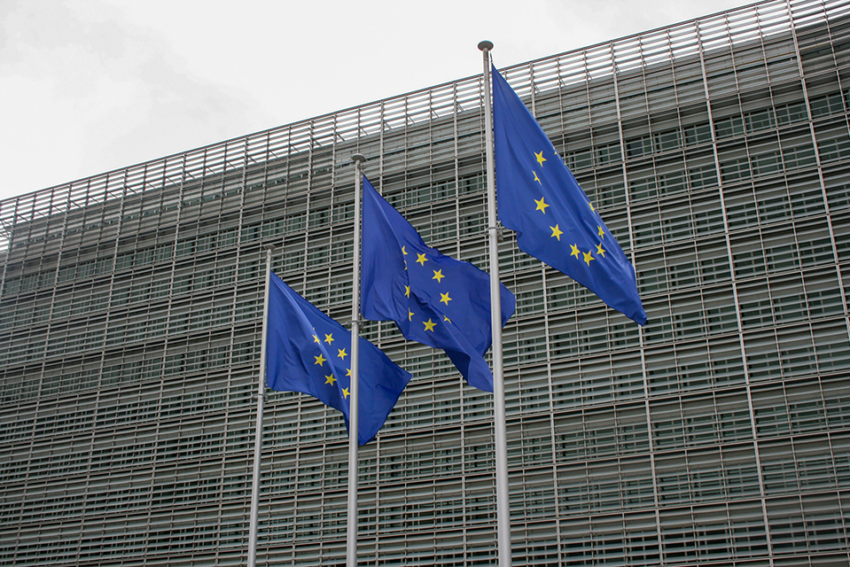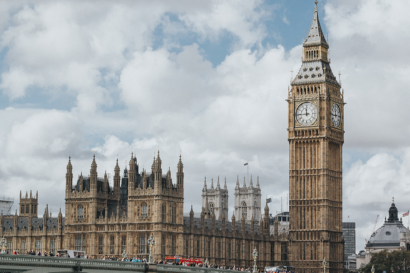AG INSIGHT | 22/05/2025
How the UK-EU reset could deliver jobs and growth in the UK circular economy.

David Johnson is head of public affairs for Michelin in the UK and Ireland. Michelin’s Stoke-on-Trent factory remanufactures truck and bus tyres, a process which uses 70 per cent less material than making a new tyre, reduces emissions and increases product lifespan.
This week’s UK-EU Reset summit saw greater alignment announced across a variety of regulation from agri-food standards to emissions trading schemes. With a commitment to future cooperation and negotiations, supported by the UK Government’s push for economic growth, there may be an opportunity to examine policy divergence on the circular economy and explore greater alignment.
The Environment Act 2021 was branded by the administration at the time as “world-leading” – and in some ways this was true. The power and commitment to ban products potentially associated with deforestation from the UK market, for example, preceded EU action on the issue by some time.
Since then, however, progress has often been slow and patchy. The current Government has focused on issuing strategies related to energy, industry and decarbonisation, with the Circular Economy Strategy expected in September.
Meanwhile, the EU strides ahead and legislates. Its impending Circular Economy Act and the Ecodesign for Sustainable Products Regulation (ESPR) give a real opportunity to promote products that last as long as possible, are easy to repair, and can be remanufactured. The legislation is also likely to focus minds on seeing end-of-life products as a resource rather than waste, triggering European investment in cutting-edge recovery technologies.
Co-ordinated effectively, ESPR and related schemes could deliver very significant employment and income growth across the EU. In the UK, however, we currently have capacity to process 150,000 tonnes of end-of-life tyres annually lying idle, while more than 350,000 tonnes are exported – often to questionable environmental and social outcomes.
Falling behind the EU when it comes to regulation directly concerned with circularity – or taking a radically different approach – is not the only risk to UK business. Divergence from other EU environmental requirements could also have a significant impact on UK markets.
For example, at the end of 2025, the European Union Deforestation Regulation (EUDR) comes into force. This will effectively bar products that could have been associated with deforestation from the EU market. A number of commodities are covered, including natural rubber. Michelin, and other responsible players, have invested heavily in risk assessment procedures, geolocation technology and administrative systems to demonstrate that their rubber is EUDR-compliant – and the cost of a key raw material has increased.
In spite of the UK’s Environment Act head start, progress on the UK Forest Risk Commodities regime has been slow, and natural rubber is not in scope. It is likely that cheap, non-EU-compliant tyres will now be diverted to the UK, especially given the uncertain trade flows between China and the US.
This creates a vicious circle for UK-made remanufactured truck and bus tyres: imported budget tyres tend not to last long, they tend to increase fuel consumption, and they are rarely robust enough to be remanufactured. As they take an ever-increasing share of the UK truck tyre market, used tyres that are good enough to be remanufactured become more scarce – and higher cost.
The UK’s Environment Act 2021 introduced primary legislation for Extended Producer Responsibility (EPR) schemes, with tyres being highlighted as a priority. There has been little progress. If developed and managed effectively, EPR – or similar systems – can create funded waste control at the same time as removing financial incentives for unscrupulous operators to illegally dump tyres in our rivers and fields.
Coupled with policies to encourage domestic investment in technologies, aimed at keeping used products as high up the waste hierarchy as possible for as long as possible, UK waste could become a valuable resource.
The upcoming Circular Economy Strategy should include the co-ordination of existing environmental policies and approaches, including End of Waste requirements, Mandatory Digital Waste Tracking and EPR. It should also be informed by the EU’s plans, which will happen with or without us. The UK needs to be in a position to seamlessly plug into an integrated, pan-European circular system which supports jobs and investment and which enhances sustainability.
Aldersgate Group and IEEP UK are working on a paper exploring current divergence and the merits of UK EU alignment on Circular Economy policy due out in early summer.



